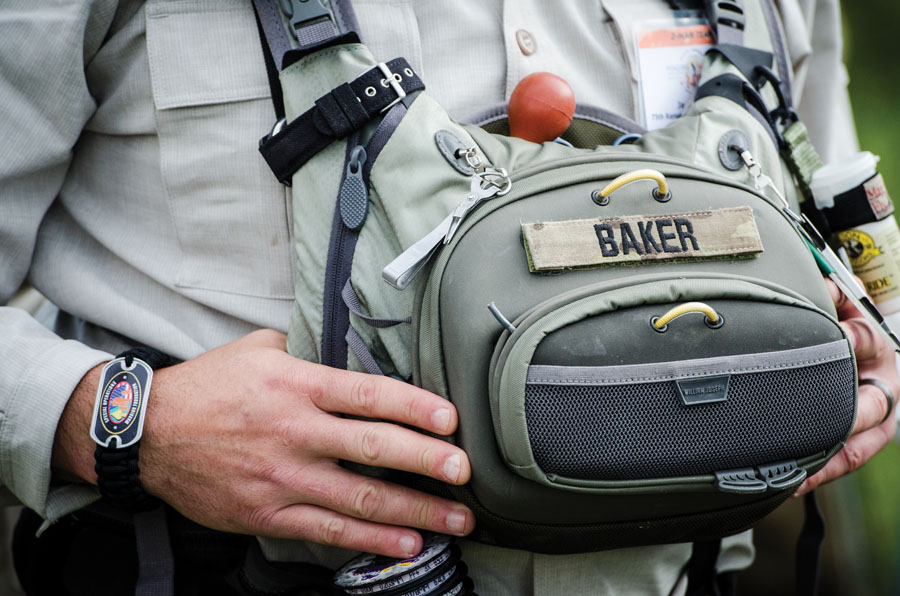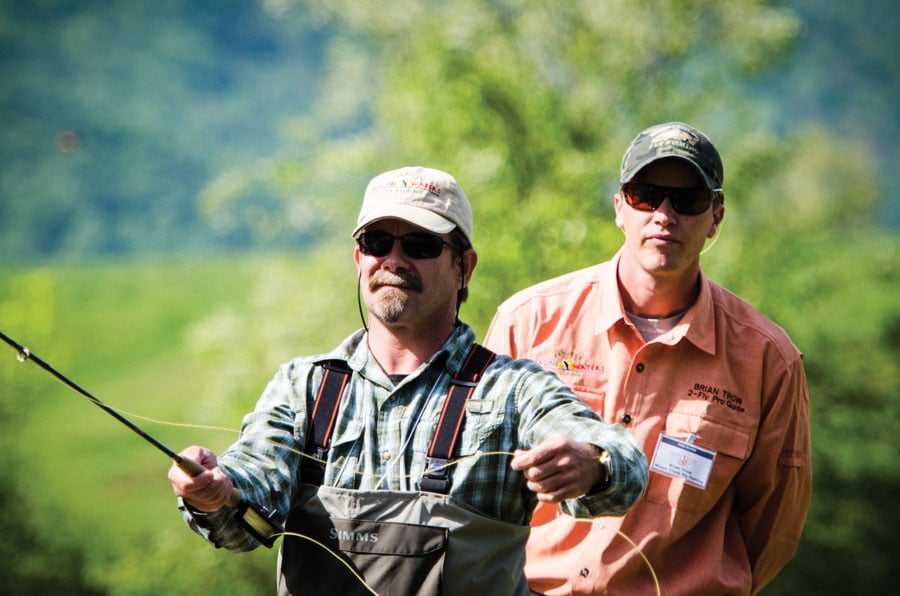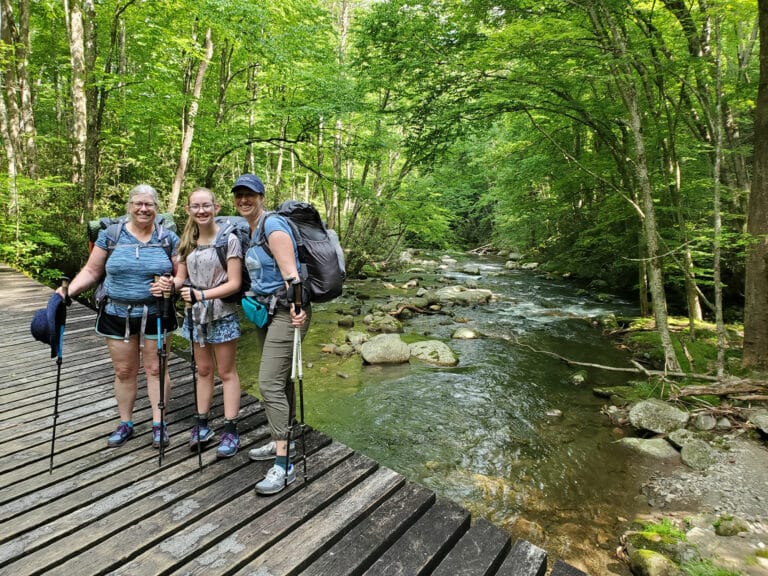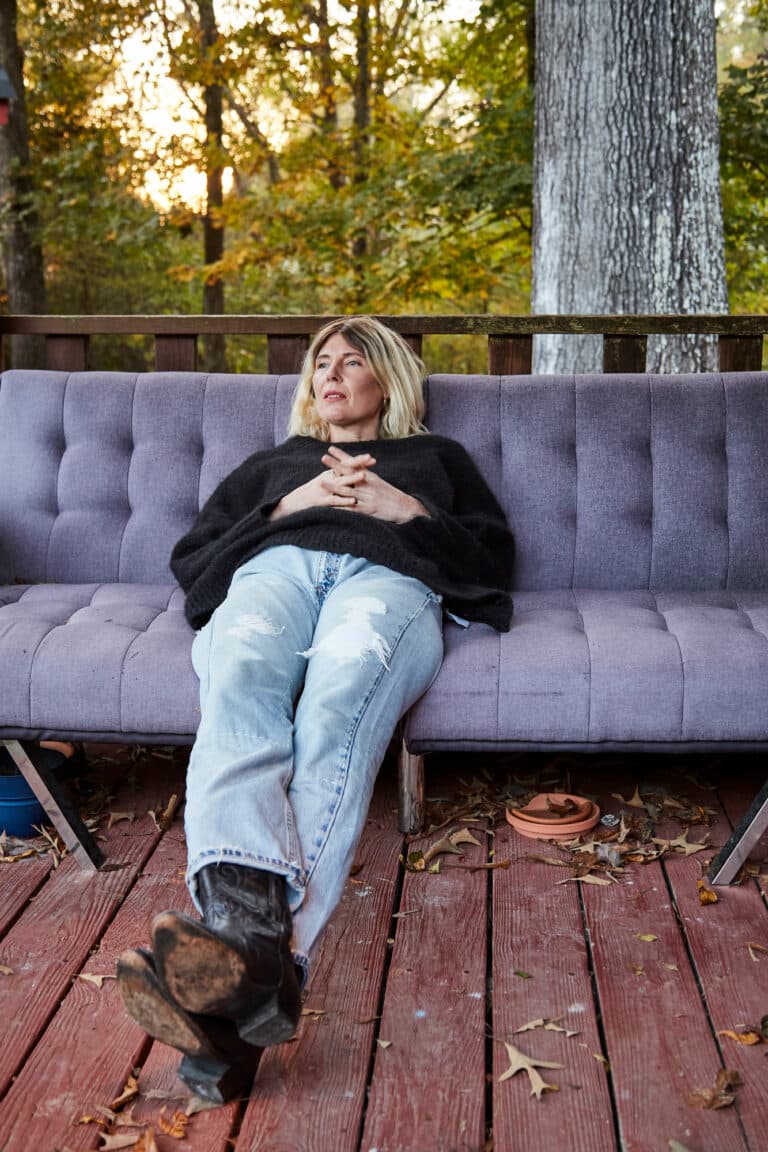If he hadn’t started climbing, veteran Stacy Bare doubts he’d be alive today.
As a captain in the U.S. Army, Bare spent a year in Iraq working to rebuild cities, a mild description that doesn’t adequately convey the raw realities of war he endured. During his service, he witnessed an Iraqi man being cut in half by gunfire, and he fought to stop the bleeding of a soldier whose legs had been blown off. While working to re-establish peace, he lost battle buddies in combat who left behind families and kids. General David Petraeus recognized Bare for excellence in working with local Iraqis in part to decrease violence as they collaborated to create communities, but upon his return home in 2007, Bare found himself consumed with bitterness toward an oblivious American public that couldn’t grasp the cost of freedom.
An unfortunate consequence of war is the fallout that happens at home once members of the military are released from their service and return to civilian life. The U.S. Department of Veterans Affairs has conducted studies on veterans of the wars in Iraq and Afghanistan, and it found the risk of suicide was up to 61 percent higher among recent veterans than the general U.S. population.
However, there is hope, and it can be found in nature. In “Stacy’s Story,” a short film produced by The North Face, Bare describes his post-service battles with alcohol, cocaine, and suicidal thoughts that seemed to offer the only ways to move past the traumas he witnessed in Iraq. While struggling to work things out, he called a friend who served with him in Baghdad, who invited him out climbing. The experience transformed Bare’s life.
“I went on the first Flatiron [in Boulder, Colorado], and I didn’t think about feeling guilty because I hadn’t seen enough to feel the way I was. I didn’t feel like I had to be anything other than just a scared first-time climber,” he remembers. “Then we get to the top, and all that trauma and all the years of trying to suppress it came flooding back through the Flatiron, up into my toes and into my hands, and I’m just shaking. All the fear and all the anger and all the confusion and all the not feeling like I fit in, and all the suicidal thoughts and everything else like that, it all came rushing up through the rock, and I get down to the bottom and I collapse, and just relief floods through me. As we’re walking down, I realize: If it’s this good for me, how good can it be for others?” Today, several organizations offer wilderness programs specifically for veterans struggling to transition to life beyond the military. After Bare’s epiphany in the Flatiron, he and former Army Ranger Nick Watson founded Veterans Expeditions, a nonprofit organization that uses outdoor experiences to empower veterans to overcome challenges associated with military service and train for outdoor employment opportunities.
Today, several organizations offer wilderness programs specifically for veterans struggling to transition to life beyond the military. After Bare’s epiphany in the Flatiron, he and former Army Ranger Nick Watson founded Veterans Expeditions, a nonprofit organization that uses outdoor experiences to empower veterans to overcome challenges associated with military service and train for outdoor employment opportunities.
In 2011, Bare moved on to the Sierra Club, where he worked as a military and veterans affairs coordinator before taking on his current role as director of Sierra Club Outdoors. Among other programs, he now oversees the Sierra Club’s Military Outdoors program, which offers a variety of free or low-cost adventure experiences for veterans ranging from backpacking and fly fishing trips in West Virginia to raft guide training trips in Colorado to Wilderness First Aid courses in Western North Carolina.
Additionally, programs like Outward Bound, Combat Wounded Veteran Challenge, Summit for Soldiers, the Heroes Project, and Wounded Warrior Ascents offer multi-day outdoor adventure trips that aim to help veterans realize their potential outside the military and provide a safe space where they can work out their difficulties with others who get it.
Navy veteran Justin Haug certainly understands these challenges. Haug shipped out to boot camp straight from high school and completed four overseas deployments in support of Operation Iraqi Freedom and Operation Enduring Freedom, with one spent working at a Joint Forces Command in the Horn of Africa. There, he witnessed babies being left on the side of the road outside the military compound and people he came to care about struggling for the very basics of survival. Haug spent a lot of time there volunteering in orphanages and teaching English to teenagers, and when his time was up, he felt like he had abandoned people who had become family.
“I allowed it all to fester,” remembers Haug, who went through a period of alcoholism, philandering, and regular fights as he struggled to escape his demons. A friend he served with recognized his unhealthy mental state and invited him to California while they both had leave, and Haug suggested they visit Yosemite National Park. On a trail there, he found himself so overwhelmed by the beauty of the surrounding nature that he committed the rest of his life to helping others find similar experiences.
“For the first time in my life, I felt free,” he recalls. “I just remember walking up a trail, and my mind was open and heart was open, and I felt connected to something larger in the universe. At the time, I didn’t even believe in any spiritual anything, but I felt connected to something larger, free and open, free of the negativity.”
Reenergized and focused on a new goal, Haug completed his service in July 2010 and began working on his bachelor’s degree in recreation, park, and tourism management at Penn State University the following month. During the summers of his college years, he worked as a wildland firefighter for the U.S. Forest Service with a group of all veterans and then as a seasonal interpretive park ranger at Grand Teton National Park’s Jenny Lake Visitor Center. In spring 2013, he joined a veterans’ Outward Bound whitewater rafting trip down the confluence of the Colorado and Green Rivers in Canyonlands National Park.
“Everyone on the trip was struggling,” Haug says. “Some people had seen a battle buddy get blown up, that kind of thing. We could get together and support each other and let the other veterans know what baggage and garbage we were hanging onto.” The experience only solidified his commitment to sharing the outdoors with others. That fall, he began a master’s degree in recreation, park and tourism sciences at Texas A&M University, which he completed this May, and he just returned to Grand Teton National Park for his fourth summer as an interpretive park ranger at Jenny Lake Visitors’ Center. He’s set his sights on a long career with the National Park Service, hoping to help as many people as possible find the benefits of nature.
In addition to his work with the Sierra Club, Bare is also working to climb or ski in every country where he served in the military as part of a personal project called “Make Adventure, Not War.” He and his wife, Makenzie, also welcomed their first child in January, a dream Bare never would have considered possible when he first fought to push up from rock bottom. Appropriately, they named her Wilder.
“Climbing saved my life, and skiing sustains it,” Bare says. “There’s something deeply universal about time in the outdoors. Specific to individuals, veterans or not, who have suffered trauma, I think it’s recognizing beauty, feeling awe that is all so powerful, getting out of your own head and focusing in on the now, realizing there’s so much of the world to live for and amazing things can be in front of you, and [for veterans] beginning to feel and experience the physical country you fought to defend.”
[divider]Outdoor Opportunities for Veterans[/divider]
The following groups offer outdoor recreation programs specifically geared toward current and former members of the military.
Sierra Club Military Outdoors
sierraclub.org/outings/military
Over the past decade, the Sierra Club’s Military Outdoors program has helped equip more than 50,000 service members, veterans, and their families with the skills and confidence to enjoy the outdoors. It also works to provide veterans with marketable job skills they can use in the outdoor industry, with three raft guide training trips in North Carolina and Utah this spring.
Veterans Expeditions
This veteran-led nonprofit runs multiple trips each month to empower veterans to overcome challenges associated with military service through outdoor training and leadership. For the second half of 2016, trips include mountaineering, climbing, and mountain biking.
Outward Bound for Veterans
outwardbound.org/veteran-adventures
The Outward Bound for Veterans program seeks to help returning service members readjust to civilian life via teamwork- and challenge-focused wilderness programs. Veteran courses often range a week or more at no cost and include sea kayaking, rafting, canoeing, backpacking, and climbing.
Combat Wounded Veteran Challenge
This organization pairs rehabilitation with research and data collection to help current and future wounded veterans learn to cope with the loss of limbs, post-traumatic stress disorder, and traumatic brain injuries through adventure challenges around the world. Challenges for 2016 and beyond include mountaineering, SCUBA diving, and equestrian rides in environments ranging from the Amazon rainforest to Antarctic peaks.
Wounded Warrior Project
woundedwarriorproject.org/programs
WWP’s Soldier Ride program is a four-day experience that introduces veterans to the sport of cycling and uses a 25- or 50-mile bike ride to empower veterans and help them make connections with other injured service members.
Trout Unlimited Veterans Service Partnership
tu.org/conservation/outreach-education
Trout Unlimited’s Veterans Service Partnership works to bring the healing power of the water to veterans interested in learning the sport of angling. With over 400 chapters and 150,000 members nationwide, this grassroots effort helps TU volunteers serve as teachers and guides on a veteran’s first exposure to fishing.
Summit for Soldiers
Summit for Soldiers specifically aims to raise awareness of post-traumatic stress following military service and reduce the number of military and veteran suicides through mentorship and the therapeutic benefits of adventure and outdoor activities. Currently the organizers are working to bring a flag bearing the name of their brothers and sisters who lost their fight to the top of the highest summit on each continent.
Heroes Project
A main mission of the Heroes Project is to put injured veterans on some of the highest summits in the world to prove that war-related injuries don’t mean the end of ability and provide inspiration and encouragement to veterans with all levels of injuries.
Wounded Warrior Ascents
WWA seeks to raise awareness of the sacrifices America’s severely injured service members and their families make in defense of our freedom and connects injured veterans with resources that can help them recover. The organization offers adaptive mountaineering programs and endurance sports opportunities to disabled veterans on peaks including Denali and Aconcagua.
Project Healing Waters
Project Healing Waters helps veterans recover physically and emotionally through fly fishing. Events, tournaments, and festivals bring participants together for support and camaraderie.








